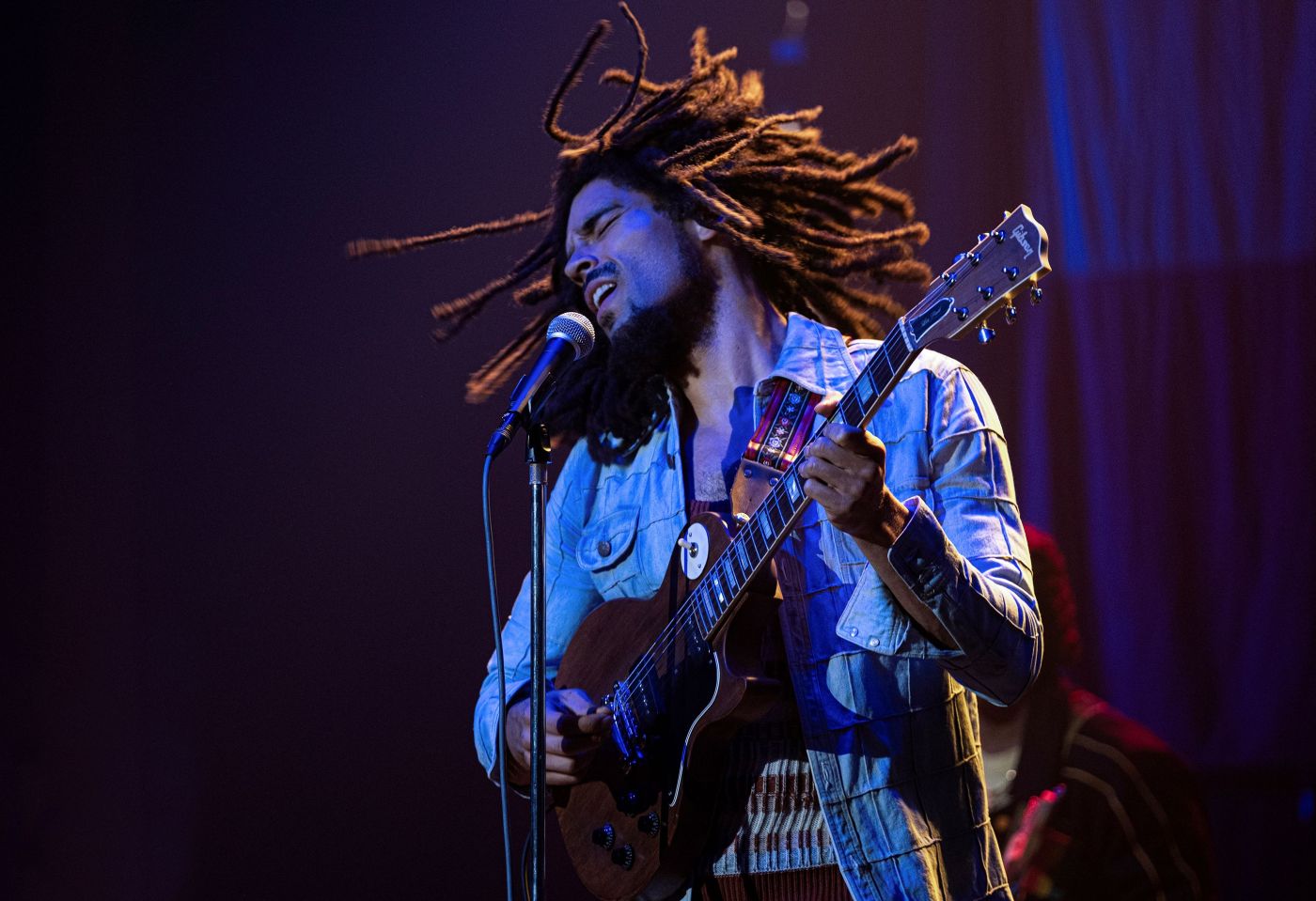
Ben-Adir makes ‘Bob Marley: One Love’ a winner
Directed by Reinaldo Marcus Green of “King Richard” and scripted by Green, Terence Winter (“The Sopranos”), Frank E. Flowers (“Shooting Stars”) and Zach Baylin (“Creed III”), “Bob Marley: One Love” is, yes, reverent (and fully approved by the Marley family, many of whom produced). But it also succeeds in getting the crucial music rights, almost as important in linking Marley’s life with his art, which was intrinsically political and spiritual.
At the center of this portrait of the artist who brought reggae to the world, performing in Europe, the U.S. and Africa, and who was a powerful force in his Jamaican homeland, is the thrilling performance of English actor Kingsley Ben-Adir (“One Night in Miami”) in the title role.
Marley was the son of Jamaican gospel singer Cedella Booker (Nadine Marshall) and white English overseer Norval Sinclair Marley (Daniel Melville Jr.), who roamed the sugar cane and coffee plantations of Jamaica on horseback. In the film, Marley repeatedly has fiery visions of himself as a little boy, encountering the glaring Englishman, who denies Marley is his son.
As an adult, Marley is married to the strong-willed, independent Rita (London-born Lashana Lynch), and they have several children, some of them, we will learn, from different mothers. Marley is both a rising musical star thanks to his work with the the reggae band the Wailers and a political figure on the island, equal in influence to the island’s two warring crime lords. For reasons having to do with this, an attempt is made on his life early in the film. It fails, although he, his manger Don Taylor (Anthony Welsh) and his wife Rita are wounded.
We hear of Marley’s spiritual connection to the early 20th century Jamaican political activist Marcus Garvey (whose words inspired the Marley classic “Redemption Song”) and the Rastafari movement, combining Christianity with Afrocentric theology. In his music, Marley adapts words from the Bible, and he promotes non-violence and Rastafari culture as a path to universal peace and love.
“One Love” gives us scenes in which Marley and the Wailers show us how a band might spontaneously create the elements of a great song such as “Exodus” from mere snippets (Ben-Adir and Marley’s voices are blended; we also hear Ben-Adir sing alone). In addition, Ben-Adir captures the distinctive dance Marley breaks into when he performs. It’s like watching a man possessed by the spirit of music itself, dreads flying, reggae’s ecstatic answer to Mick Jagger’s gyrating goat. In one of the film’s best scenes, the young Bob Marley (Quan-Dajai Henriques) and the Wailers find themselves being “discovered” in a small Jamaican recording studio performing “Simmer Down,” an early hit and non-violent, reggae anthem.
“One Love” makes it clear why “Exodus” is considered one of the greatest albums of the 20th century. In the supporting cast, Michael Gandolfini (“The Many Saints of Newark”) paradoxically shines as a young American record producer who doesn’t know what he’s talking about. Englishman James Norton (“Little Women”) amiably appears as Island Records chief Chris Blackwell. Lynch is a rock. But Ben-Adir’s Marley is the film’s marvel. Yes, every little thing is gonna be alright.
(“Bob Marley: One Love” contains weed use, some violence and profanity)
“Bob Marley: One Love”
Rated PG-13. At the AMC Boston Common, AMC South Bay, Causeway, Alamo Drafthouse Seaport, Landmark Kendall Square and suburban theaters.
Grade: B+


